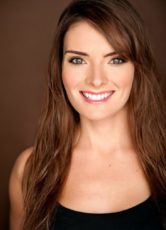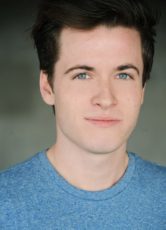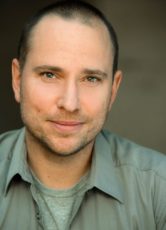The Actor’s Tough Work of Being Vulnerable: Lessons From Brené Brown’s Ted Talk
December 4, 2024
Whether it’s working on a new character, auditioning for acclaimed casting directors, or working on the set of an Oscar-worthy film, actors know a lot about vulnerability. They’re used to breaking through barriers to express their characters’ genuine emotions with as much authenticity as possible to create an emotional connection — even if they are going through something in their personal lives.
“The show must go on” means performing even if the performer is under the weather, in pain or grieving. Simply auditioning, let alone participating in acting classes, is an act of bravery in itself. An actor’s vulnerability is precisely what draws audiences into any given story. Through an impactful performance covering a wide range of emotions, an actor will create a shared vulnerability with the audience and move them to tears.
However, tapping into the power of vulnerability does not always come easy, and even successful actors can struggle with creating a deeper connection. People are socialized to show strength and sureness in their daily lives and are sometimes even taught to conceal their emotions and insecurities. Things can get a little more confusing when actors are told how important it is to display both confidence and vulnerability in the audition room.
Actors Quotes on Being Vulnerable
English actor David Morrissey has referred to the contradicting messages thespians receive by advising actors to, “grow a thick skin so that the things people say about you bounce off you. But you also have to keep yourself very open emotionally. But sometimes those two things can fight each other, so you just have to take the rough with the smooth.”
Another example of the tug-of-war between vulnerability and confidence is reflected in the English actress Tracy-Ann Oberman’s advice. “I think there’s a lot of fear sometimes of any self-employment, and I think particularly in acting. And I think that fear can infect all corners of your work. So I think, don’t be afraid.”
That said, being unafraid is easier said than done, especially during dry periods when auditions are scarce.
To shed light on the topic of vulnerability, let’s hear from Brené Brown, whose TED Talk, The Power of Vulnerability has garnered more than 22 million views since it was first uploaded in 2011.
Brené Brown Discusses the Secret of Being Vulnerable
Brown is a research professor at the University of Houston, six-time bestselling author and host of the podcasts Unlocking Us and Dare to Lead. Brown has spent the past two decades studying courage, vulnerability, shame and empathy. The data she collects and analyzes are people’s personal stories, particularly their moments of greatest struggle.
Through her research, Brown discovered a broad theme in the human experience: there are those who tend to be ruled by shame and fear while others, who she refers to as “the whole-hearted” manage to rise above the shame/fear. She noticed the whole-hearted live with the following convictions.
- They exhibit the courage to be imperfect.
- They’re kind to themselves first and then offer that same compassion toward others. Brown says, “As it turns out, we can’t practice compassion with other people if we can’t treat ourselves kindly.”
- They formed bonds with others as a result of their authenticity. “They were willing to let go of who they thought they should be in order to be who they were—which you have to absolutely do that for connection,” says Brown.
- They fully embraced vulnerability. As Brown puts it, “They believed that what made them vulnerable, made them beautiful.”
The Key to Unlocking Your Vulnerability
During her studies, Brown realized the ability to be okay in one’s vulnerability is key to unlocking “joy, creativity, belonging, and love.”
“You’re imperfect and you’re wired for struggle, but you’re worthy of love and belonging,” she says.
Brown’s Ted Talk is inspirational and encourages us to embrace the challenges in our lives while being much more real with others which, in turn, invites more gratitude and love in our relationships. For actors, the valuable tool of vulnerability can create a new level of authenticity for their work, and be a source of strength in their real life.
As Brown says, “Let ourselves be seen—deeply seen, vulnerably seen. Love with our whole hearts even though there’s no guarantee … practice gratitude and joy … and believe, ‘I am enough.’”
Want to get your acting career started? Sign up or login to Casting Frontier and start auditioning today!
You may also like:
- Acting Coach Kimberly Jentzen on Making Strong Choices
- The Power of Observation as an Acting Tool
- The Art of Rehearsal and Preparation for Actors
Viola Davis’ Bold Risk to Take Off Her Wig and MakeUp
January 27, 2023
When it comes to acting, Viola Davis is an absolute powerhouse. The How to Get Away with Murder star recently received a BAFTA Award nomination for her performance as Nanisca in The Woman King.
In a How to Get Away with Murder-themed For Your Consideration panel from 2015, Davis said that her role as Annalise Keating was unlike any role she’d ever been offered. “When someone is described as sexual and mysterious and complicated and messy, you don’t think of me. I thought it was a really great opportunity to do something different, to transform into a character that people weren’t used to seeing me in.”
Speaking about the captivating closing scene in which Annalise removes her wig, eyelashes and wipes away her makeup–essentially transforming her character from powerhouse defense attorney-law professor into a woman with vulnerabilities that everyone can relate to–Viola explained that this revelatory scene was her own idea. Indeed, she explained it was the only way she agreed to play the part of Annalise.
“There was something I didn’t buy about Annalise in private. It felt like who she was in private had to be diametrically opposed to who she was in public,” she said. “And so in order to do that, I felt like I had to physically take the wig off. I mean, I have no eyebrows. I have eyelashes that I put on, and there was something extremely vulnerable about that act–and I know it seems like a very simple act at the end of the day–but for me, that simple act really surmounted to something very powerful in the end, because what it was was someone being very, very private in public, which is absolutely the cornerstone of what we do as artists. I didn’t just want to walk in heels like I was a supermodel. Who does that? That was how that scene came about. I didn’t want to wake up in bed thinking that this is how I really look. I wanted to woman up, and I wanted to actor up, too.”
The director of the episode asked Viola, “Now do we want to take off all the makeup?” Davis made clear her position, “You know what? I want to take it off.”
Intrigued by the notion of exposing the “part of being a woman that people kind of throw in the trash heap when you see them on TV,” Viola shared with Nightline, “It’s very empowering–and for me, intensely interesting.”
Here’s one of those bold risks that actors often talk about in their determination to create layered, compelling characters. It turns out that less can really be more.
Viola has decided to wear her natural hair in her personal life as well for similarly empowering reasons.
“I took off my wig because I wanted to step into who I was,” she said. “And I felt like…every time I put on a wig that I was apologizing for who I was, being a dark-skinned woman, very curly hair, I felt like I was hiding it…and I felt like I didn’t want to do that anymore…and I stepped into who I was.”
Want to get your acting career started? Sign up or login to Casting Frontier and start auditioning today!
Related articles:
Acting Career Insights from Samuel L. Jackson and Viola Davis
Viola Davis’ Acting Insights
10 Celebrated Actors Share Acting Advice




